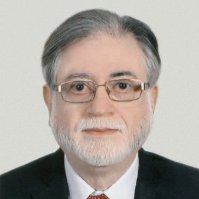Sep 28, 2022 | By Amb Achal Malhotra
The outcome of the stage-managed referendums in three eastern provinces of Ukraine (Donetsk, Luhansk, Zaporizhzhia) and Kherson towards the south controlled by Russia is on the expected lines. The results were announced on September 27 and according to media reports, citing Russia-installed officials in these areas, between 87 % to 99.2% voted in favour of joining Russia.
It is a foregone conclusion that the Russian parliament, scheduled to meet on October 4 will ratify the annexation agreements and formalise the annexation of these Ukrainian regions which together constitute about 15% of the Ukrainian territories. In a way, the history is repeating itself.
In 2014 Russia had annexed the Ukraine’s Crimean peninsula. A qualitative difference, however, is that the annexation this times comes in the midst of a bloody military conflict between Russia and Ukraine the fall-out of which (in terms of threats to food security, energy security, disruptions in supply chains, steep rise in inflation etc.) is being felt much beyond the borders of Russia and Ukraine, particularly in Europe as well as in several poor and developing countries located far away from the scene of the conflict.
The response to the referendums and the anticipated ensuing annexation of the Ukrainian territories by Russia is also on expected lines. The referendum have been widely condemned and dubbed as illegitimate and as a sham. Reports at hand suggest that the US is preparing to move a resolution in the UN Security Council calling on member states not to recognise any change to Ukraine’s territory and to obligate Russia to withdraw its troops from the occupied territories. The US Resolution in the UNSC will definitely be vetoed by Russia.
Afterwards, the US in all likelihood will move the resolution in the UN General Assembly where it will go through in all probability. In addition, the USA may announce further sanctions on Russia. But will it help?
It is noteworthy that none of the four regions which held referendums is under Russia's full control. The Ukrainian forces which of late are in an offensive mode, recently made notable headway in the province of Kharkiv which had at one stage fallen under Russia’s control.
Encouraged by the extensive moral, military and material support from the West, Ukraine’s president has repeatedly pledged to retrieve the Ukrainian territories which have fallen under Russia’s control in the course of the war now in its seventh month. Ukrainian President Zelensky told the UN Security Council through a video message from Kyiv that Moscow's attempts to annex Ukrainian territory will mean “there is nothing to talk about with this president of Russia (Vladimir Putin).” President Zelensky’s statement read with the reports that the USA is planning to announce a $1.1 billion military package for Ukraine is a signal that the possibility of any meaningful dialogue in near future is ruled out.
According to Reuters, the new US arms package will include HIMARS launcher systems, accompanying munitions, various types of counter drone systems and radar systems, along with spares, training and technical support.
In this context, Russia’s Foreign Minister Lavrov's recent statement in New York is of considerable significance. He assured that Russia will provide full protection to these territories on becoming a part of the Russian Federation and any attack on these territories will be treated as an attack on Russia. In an alarmist tone he cautioned that Russia would use all means at its disposal to protect newly annexed territories. This part of Lavrov’s statement is being interpreted as an implied warning that Russia will not hesitate to use nuclear arsenals if required.
By all available indications the conflict is likely to escalate even though Russia can be said to have partially achieved its objective of establishing its foothold in the eastern parts of Ukraine and putting an obstacle to the prospects of NATO membership for Ukraine. The Americans, however, would like to prolong the conflict and weaken and isolate Russia as much as possible. Meanwhile the world community will continue to live under the fear of an outbreak –by accident or by design - of a nuclear war and its devastating impact for rest of the world.
The larger issues on the floor are the issues of the territorial integrity and right to self-determination. Most of the 3.6 million people living in the Donetsk and Luhansk regions speak Russian, a result of a migration of Russian workers to the regions after World War II, during the Soviet era. Moscow has in recent years issued more than 720,000 Russian passports to roughly one-fifth of the region's population. The pro-Russian separatists in Donbas region (Donetsk and Luhansk) had earlier declared independence and have now voted for joining Russian Federation. Prima-facie, the population in the region is exercising its right to sel-determination which from Ukraine’s perspective is a violation of the territorial integrity of Ukraine whose borders with Russia were settled after the disintegration of the USSR in 1991. Further, technically Russia is only responding to the request from these regions for becoming a part of the Russian Federation.
However, it is well known that the ground realities are different and the entire show has been scripted by Russia. The referendums as per Russia’s narrative are an expression of the will of the people of these regions and their annexation by Russia legitimate.
The pity is that on several occasions, the big powers have intervened militarily in other countries in pursuance of their vested interests using different pretexts and the world community and the UN have been only silent spectators.
Published in www.wionews.com
Reference: https://www.wionews.com/opinions-blogs/ukraine-through-referendums-the-history-is-repeating-itself-520585
Ambassador (Retd), Indian Foreign Service

Member of the Indian Foreign service who retired as an ambassador in 2012. Served as Deputy Permanent Representative of India to UN and other international organizations in Vienna. Currently independent analyst India's foreign policy and international relations.